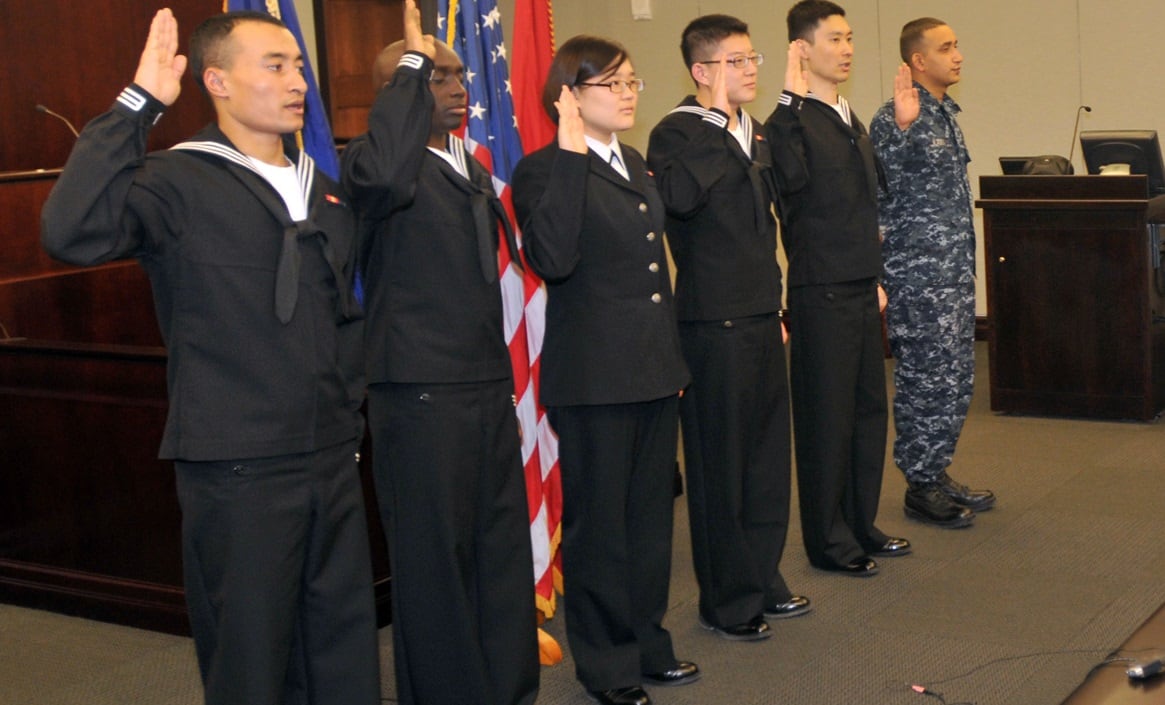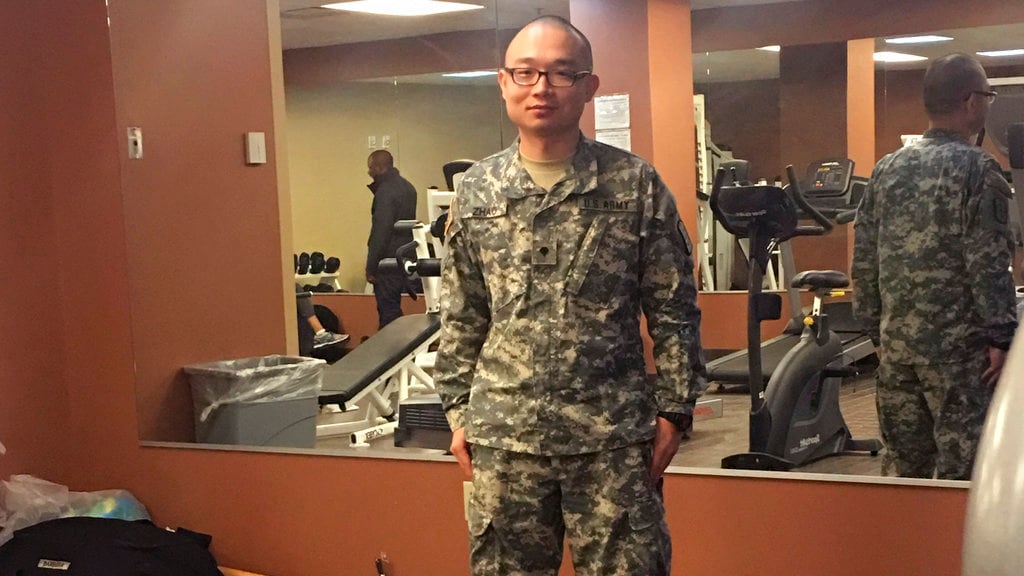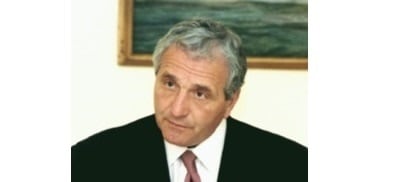Editor’s note: The following is an opinion piece. The writer is not employed by Military Times and the views expressed here do not necessarily represent those of Military Times or its editorial staff, nor those of the Defense Department.
Recently, the Associated Press reported that more than 40 immigrant recruits and reservists have either been discharged from the Army or had their status as soldiers questioned.
Some of the soldiers said that they’d been labeled “security risks” because of relatives abroad, or because background checks had not been completed on them.
If this is, as many suspect, a way to keep immigrants who join our armed services from obtaining citizenship, it is a terrible, misguided policy.
In reading the story, I was reminded of three men, two of whom I had the privilege of meeting when I was secretary of Veterans Affairs during the administration of President George W. Bush.
I met the first shortly after the Iraq War began, when I visited Bethesda Naval Hospital to talk to the first wave of wounded troops. I came to the room of a badly injured young Hispanic Marine who had been wounded in Fallujah. Unlike many others, he had no family with him.
Before I left his bedside, I left a book about the benefits a grateful nation offers those who have served her in uniform. I told him that when he got better, he should take some time to read the book, because he had earned every benefit in it.
RELATED

Then I went on to the Marine who shared the room with him and spent a few minutes with that young man and his parents. As I was leaving, I noticed the first Marine was already reading the book I had given him. So I went over to him, and told him how pleased I was he was taking the time to read through it.
Because of his injuries, the Marine couldn’t speak very well, but I saw he was pointing to one particular provision. I could barely make out what he was saying, but finally I understood. “That’s all I want,” he said. “That’s all I want.”
I saw he was pointing at the provision that enabled him to become an American citizen because of his service to all of us. Three days later, without any fanfare, President Bush visited the young man’s bedside and administered the oath of citizenship.
Shortly thereafter, at Walter Reed Army Medical Center. I saw a young soldier, missing three limbs, with his father by his bedside. His survival was in doubt, and he was unable, or unwilling, to talk to me. His father, I could tell immediately, was from a foreign country.
Remembering my experience with the Marine, I tapped the father on the shoulder, and asked him: “Is your son a citizen?” He said “No. He came from Micronesia to serve in the Army, and becoming a citizen was the reason he enlisted.”
The soldier lived, and when he recovered, Homeland Security Secretary Tom Ridge and I were proud to administer the citizenship oath to him.
RELATED

Immigrants are not demons to be feared. They are nearly always people with hopes and dreams, and a willingness to support the ideals of their adopted country. Since the Revolutionary War, they have been willing to die to defend our borders — and our freedoms. Nearly 20 percent of the Union army was made up of foreign-born service members. The military now recruits nearly 5,000 noncitizens every year.
We must secure our borders from those who would do us harm, that is certain. But we must do so in a way that maintains our nation’s ideals.
By refusing to accept legally qualified immigrants — as service members or as citizens —we are tearing the tapestry that has made America great. We cannot pull at any of the threads of that tapestry without losing some of its beauty, and without fearing that the entire piece, so painstakingly woven together over the course of 240 years, may unravel.
We must recognize that new arrivals, like the two service members I met, are overwhelmingly likely to make a positive contribution to our national story — not a negative one.
The third man I thought of was my father, an immigrant who served in the U.S. Navy in World War II alongside millions of citizens and others from many lands, who joined together in the great fight to save humanity. He became a citizen himself, and instilled in his children and grandchildren an overwhelming love for the United States and its principles and ideals.
His guidance led me to proudly serve America in Vietnam, on Capitol Hill, and in President Bush’s cabinet. I have no doubt some of the children of today’s immigrants, especially of those who are willing to give their lives for our freedoms, will better my accomplishments — if they are given the chance.

Anthony J. Principi served as Secretary of Veterans Affairs (2001-2005) and chairman of the 2005 Base Realignment and Closure Commission.




